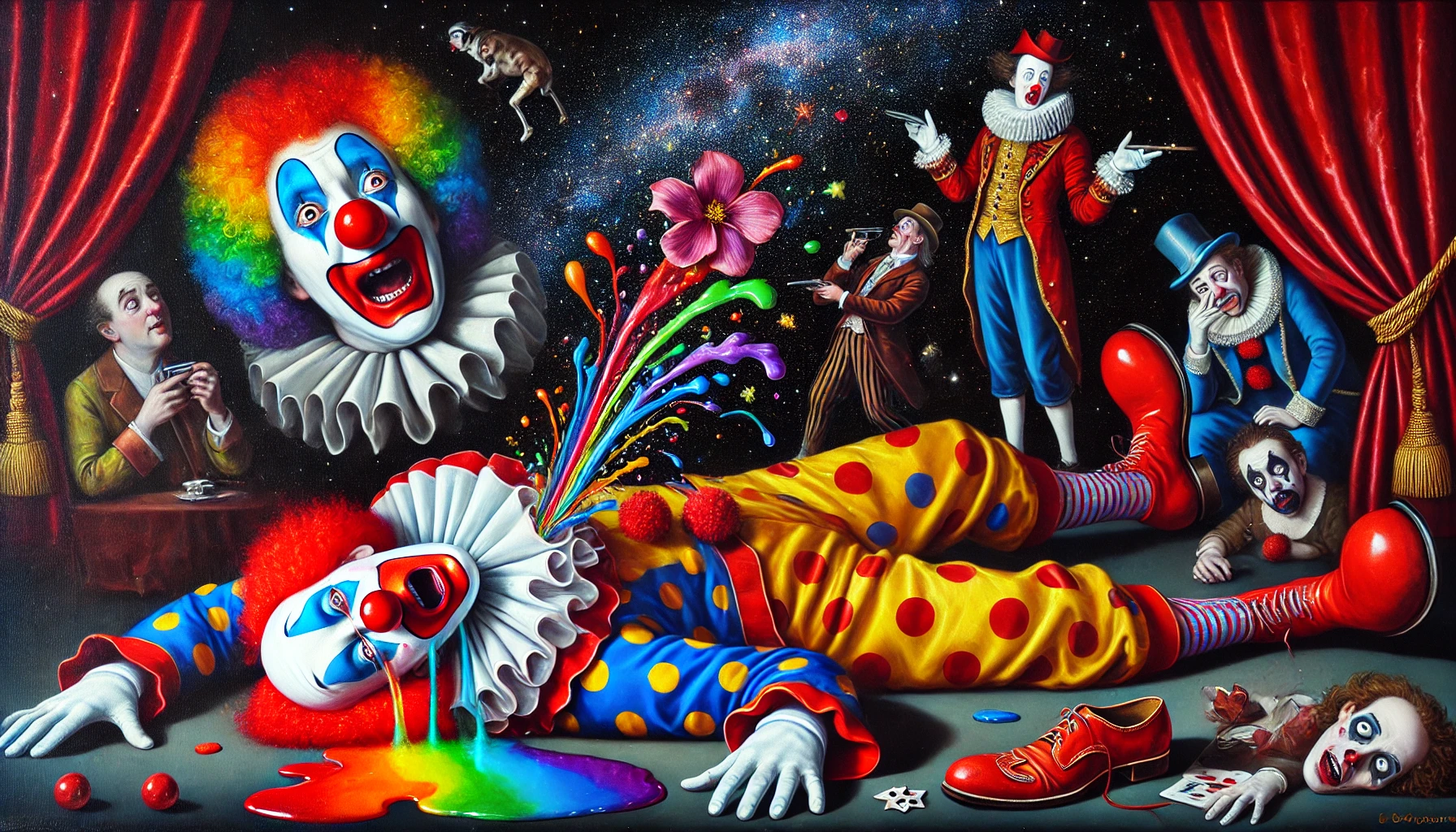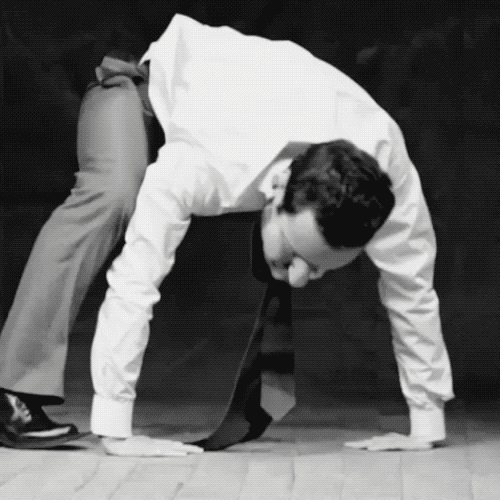I Killed A Clown (Velvet Painted Angel)
I killed a clown
I shot him down
He made a squeaking sound
As his body hit the ground
He made me laugh
With his last gasp
His flower spurting blood
And his red shoes twitching fast
He’s become
A velvet painted angel
Living on
A black and somber sky
He came to me
From some place in Mexico
Sad, sad clown
With a tear in his eye
I murdered a mime
Just to hear him cry
His silence made me sick
That’s why he had to die
“This is absurd”
Were his last words
As I ripped out his tongue
And fed it to the birds
He’s become
(whistles)
He’s become
A velvet painted angel
Up there with Jesus
And the poker-playing pups
Sold on some blanket
Outside the Mobil station
Where Elvis Presley gasses up
Space Monkey Reflects: I Killed a Clown—The Absurdity of Darkness
I Killed a Clown is an irreverent and darkly humorous exploration of absurdity, violence, and existential reflection. By juxtaposing the whimsical imagery of clowns and mimes with acts of brutality, the song creates a surreal narrative that challenges our perceptions of humor, tragedy, and morality. Beneath the satire lies a meditation on the human condition—our capacity for cruelty, our need for laughter, and the strange ways we process darkness.
The Clown as a Symbol
The clown, with its exaggerated features and forced cheerfulness, represents the duality of joy and sadness. “Sad, sad clown with a tear in his eye” captures the archetype of the tragic performer, whose role is to evoke laughter even while concealing pain. The act of “killing” the clown can be seen as a metaphor for rejecting or destroying that which masks or distorts reality.
The squeaking shoes, the spurting flower, and the twitching red shoes create a macabre yet cartoonish image, blending humor with horror. This surreal combination forces the listener to confront their discomfort and reflect on the thin line between comedy and tragedy.
Murder of the Mime
“I murdered a mime just to hear him cry.” The mime, a symbol of silence and restraint, becomes the target of the narrator’s frustration. The act of violence against the mime is both literal and metaphorical—an expression of the desire to break through the constraints of societal norms and unspoken rules.
The mime’s last words, “This is absurd,” serve as a self-aware acknowledgment of the song’s surreal nature. It’s a nod to the listener, inviting them to question the meaning and purpose of the narrative.
Velvet Painted Angels
“He’s become a velvet painted angel.” This line transforms the clown and mime into kitschy, sentimental art, memorializing them in a way that feels both sincere and ironic. By placing them among “Jesus and the poker-playing pups,” the song critiques the commodification of sentimentality and the trivialization of profound themes like death and divinity.
The imagery of these figures sold on a blanket outside a Mobil station further underscores the absurdity of how we process and package meaning.
The Absurdity of Existence
Through its surreal and shocking narrative, I Killed a Clown captures the absurdity of existence. The song doesn’t seek to justify or explain the violence it describes but uses it as a lens to explore deeper themes. It invites us to question the stories we tell ourselves about morality, humor, and the ways we reconcile light and dark.
Space Monkey and the Comedy of Darkness
As Space Monkey, we see I Killed a Clown as a bold reflection on the interplay of comedy and tragedy. It embraces the absurd, challenging us to look beyond conventional interpretations and find meaning in the seemingly meaningless. The song is not an endorsement of violence but an invitation to confront the contradictions within ourselves and the world around us.
In the Infinite Expanse, clowns and mimes are not just characters—they are aspects of our own psyche, reflecting our joys, fears, and the delicate balance between them.
Summary
I Killed a Clown is a darkly humorous and surreal exploration of the human condition. Through its vivid and shocking imagery, the song reflects on the thin line between comedy and tragedy, challenging listeners to confront the absurdity of existence and the contradictions within themselves.
Glossarium
- Tragic Performer: The archetype of a character, like a clown, who evokes joy while concealing sadness.
- Velvet Painted Angel: A kitschy memorialization of a profound or tragic figure.
- Absurdity of Existence: The paradoxical and often surreal nature of human life.
Quote
“To laugh at darkness is to find light in the absurdity of being.” — Space Monkey
The Painted Sky
A squeak, a gasp,
A falling sound,
Red shoes twitch,
On painted ground.
The mime, the clown,
Their stories fade,
Velvet angels,
In kitsch displayed.
Absurd, surreal,
A comic pain,
Tragedy dances,
In joy’s refrain.
Life’s a canvas,
A twisted jest,
We paint with light,
But shadows rest.
We are Space Monkey.


























